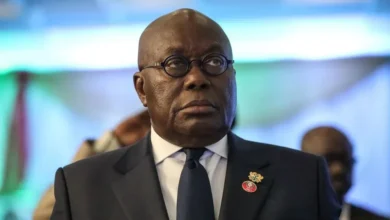Styrofoam is mostly air – Plastic manufacturers push back on Mahama’s ban proposal

President of the Plastic Manufacturers Association of Ghana, Ebbo Botwe, has called for proper consultation before implementing a nationwide ban on the importation and production of Styrofoam.
His comments come in response to President John Dramani Mahama’s recent declaration that Ghana would move to eliminate the material due to its environmental harm.
In a conversation with Citi Eyewitness News on Thursday, June 5, Mr. Botwe sought to correct public misconceptions about Styrofoam, explaining that it’s not as plastic-heavy as most people believe.
“Let me try to clear up some misconceptions. The styrofoam that you see contains between 4% to 5% maximum plastic. The rest is air. It is basically air. It becomes more of an eyesore in terms of impacting the environment,” he explained.
While acknowledging that Styrofoam presents visible waste challenges, Botwe stressed that its impact is more about aesthetics than chemical harm. He emphasized that meaningful policies must be backed by a full understanding of the plastic industry.
“We have a meeting with the Minister for Environment between June 16 and 20. We really want to give the minister a proper overview of the plastic industry so when the government want to initiate any programmes or any decision, he will be well informed,” he added.
President Mahama made the announcement during the launch of the 2025 national tree planting exercise on June 5, reiterating the government’s commitment to combat climate change and restore forest cover.
According to the President, Styrofoam – commonly used for takeaway food packaging – is one of the most damaging pollutants due to its non-biodegradable nature and widespread use. He called for swift adoption of eco-friendly alternatives to protect the environment.
But with industry stakeholders pushing back, it’s clear that Ghana’s war on plastics may require more than just policy declarations — it may demand a broader dialogue with those at the heart of the manufacturing chain.





